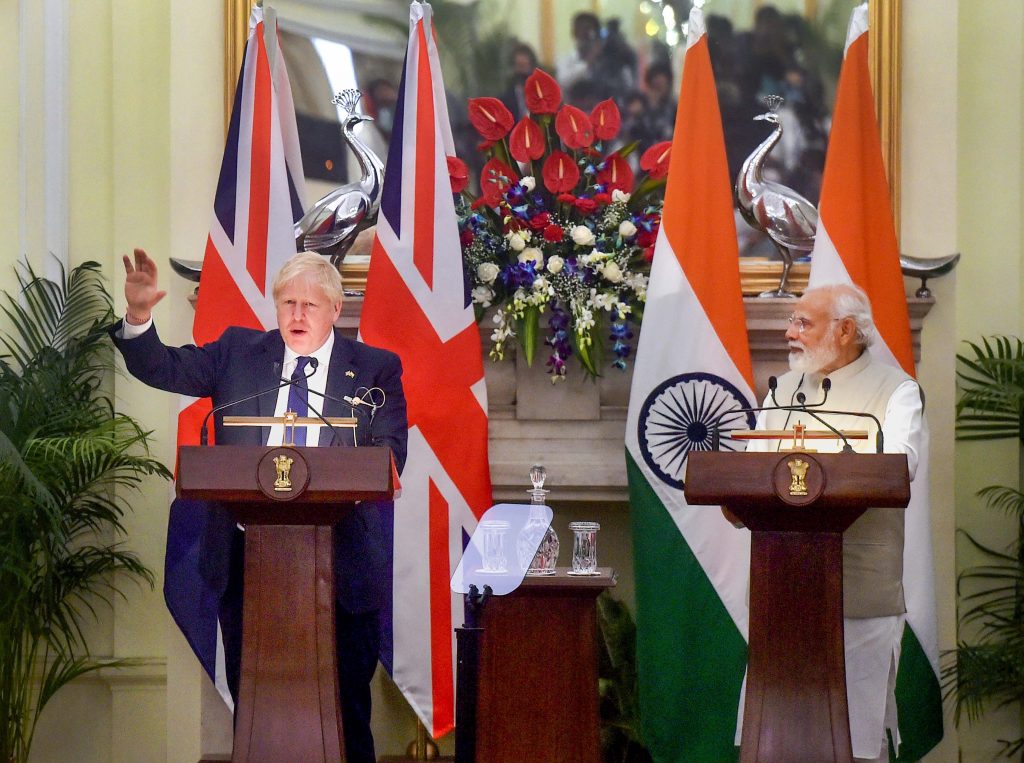London: Prime Minister Narendra Modi and his UK counterpart, Boris Johnson, set the negotiating teams on both sides a Diwali deadline for the conclusion of an India-UK free trade agreement (FTA) during bilateral discussions Friday in New Delhi. Diwali this year falls on October 24. This new FTA goal has been pushed forward from the previous timeline of striking a deal by the end of this year. Boris Johnson is on the final day of his two-day visit to India. He said the FTA could double India-UK trade by 2030 and drive down consumer prices.
“Today Prime Minister Modi and I told our negotiators to get it (FTA) done by Diwali in October,” said Johnson. “This could double our trade and investment by the end of the decade, driving down prices for consumers, and increasing wages across the UK by as much as 3 billion pounds,” added the British Prime Minister.
On the eve of Johnson’s visit, officials had confirmed that four out of 26 chapters within the FTA have been finalised during the first two rounds since the negotiations began in January and ‘significant progress’ has been made in the remaining 22 chapters.
The third round of talks between the negotiating teams is set to begin in New Delhi next week.
The visiting British Prime Minister was welcomed by Modi with a Guard of Honour at Rashtrapati Bhavan earlier Friday. Johnson pointed out that Indian investment already supports almost half a million British jobs. He said that with India’s population bigger than the US and the European Union (EU) combined, there is a lot of potential to take India-UK trade and investment to a ‘whole new level’.
“Our new and expanded Defence and Security Partnership will enable India to strengthen its own domestic defence industry as well as protecting vital shared interests in the Indo-Pacific,” said Johnson.
“India is an incredible rising power in Asia, with one of the fastest growing economies in the world – already worth 2.25 trillion pounds – and set to be the world’s third largest economy by 2050,” Johnson said.
“India is also our biggest partner in the Indo-Pacific, which is increasingly the geopolitical centre of the world, with two-thirds of humanity, and a third of the global economy – and that share is rising every year,” he added.
